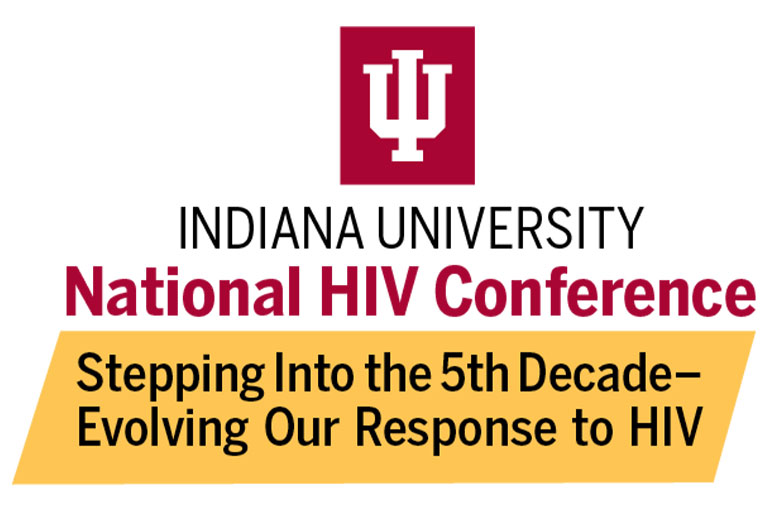Much has transpired since the dark days of the 1980s when researchers first identified the HIV virus. Millions of lives have been saved due to HIV treatment, improved access to testing, activism, and new prevention options. Today, around 37 million worldwide live with HIV. Of that figure, 22 million are on treatment.
But, challenges remain. Globally, more than 1.8 million people are newly infected every year with the virus. In Indiana, 540 new HIV infections occurred in the state as of January 2022. According to the Centers for Disease Control and Prevention, there are 13,900 people with HIV in the Hoosier state. Unfortunately, seventeen percent of Hoosiers with HIV are unaware of their status, which means they aren't getting the HIV care and treatment they need.
This reality underscores the continuing need to educate, inform, and raise awareness about HIV in Indiana.
On June 8-11, 2022, Indiana University held the first national HIV conference at a major university titled "Stepping Into the 5th Decade—Evolving Our Response to HIV."
Hosted by Indiana University's Office of the Vice President for Diversity, Equity, and Multicultural Affairs (OVPDEMA), the event brought together almost 400 conference participants; 41 workshop and poster session presenters; four keynote speakers; and three community dialogue sessions to share information and unite around the goal of ending the HIV epidemic by 2030. In addition to workshops and networking opportunities, the four-day conference provided dozens of free HIV testing and resources, empowering community members with knowledge and helping keep them and others safe.
"Through this national conference, Indiana University has been able to provide a platform for all sectors of society to come together and respond to the HIV/AIDS epidemic," says James C. Wimbush, vice president for diversity, equity, and multicultural affairs, dean of the University Graduate School, and Johnson Chair for Diversity and Leadership.
"There are many HIV/AIDS conferences, but few focus on higher education and reach college students. As an institution of higher learning, we believe it is our responsibility to amplify a message for better HIV prevention and treatment on college campuses. Bringing together experts across disciplines inside and outside higher education to discuss this important topic is part of this mission."
The conference reached a global audience from national researchers, pharmaceutical representatives, and educators to college students. Registered conference participants were from the United States, South Africa, and the Virgin Islands, with representation from thirty of the fifty United States. In addition, the conference impacted the state, with one hundred forty participants joining from across Indiana.
The Indiana University National HIV Conference welcomed several nationally recognized speakers and prominent HIV/AIDS researchers. All are on the President's Advisory Committee on HIV/AIDS. Among them: Mr. Harold Phillips, director of the White House Office of National AIDS Policy; Mrs. Raniyah Copeland, former president and CEO of the Black AIDS Institute; Ms. Tori Cooper, director of community engagement for the Transgender Justice Initiative – Human Rights Campaign; and Dr. Michael Saag, associate dean for Global Health, director of the UAB Center for AIDS Research, and professor of medicine at the University of Alabama at Birmingham.
"It was amazing to see the level of dialogue and engagement amongst conference participants. The conference provided unique opportunities to network and dialogue with higher education and HIV/AIDS practitioners. Many felt the ample time for reflection and engagement was unique to this HIV conference. Overall, it was a great success," says Bruce E. Smail, M.A., IUNHC conference chair, special assistant to the vice president for diversity, equity, and multicultural affairs, and director of the LGBTQ+ Culture Center.
Visit iunhc.iu.edu to learn more.


